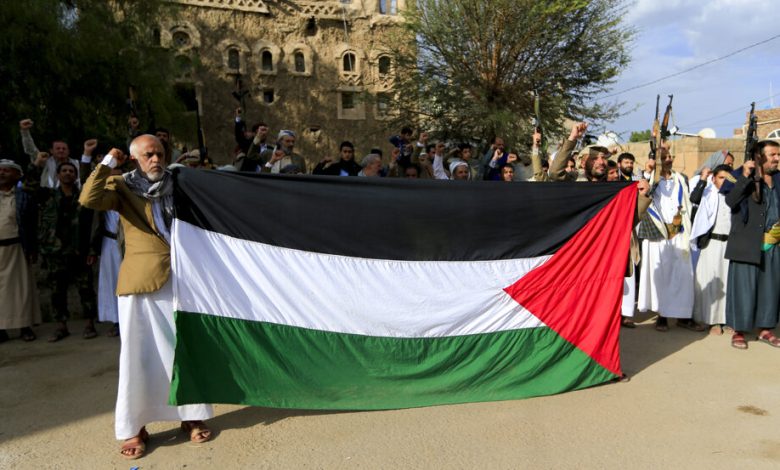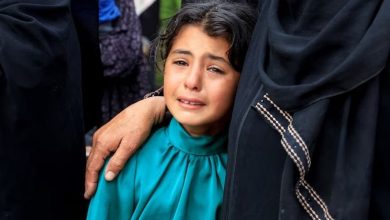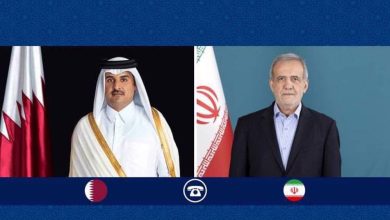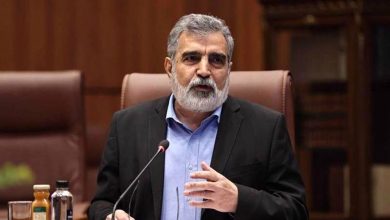Yemen stands as a beacon of defiance against oppression and aggression
The Yemeni population has demonstrated a firm stance of autonomy by expressing unequivocal support for the Palestinian cause, despite the escalating aggression from pro-Israel entities, a campaign that has recently garnered increased backing from the United States and its allies.

Recent heightened US airstrikes targeting Yemeni cities and infrastructure align with Washington and its allies’ enduring support for Israel, which has persisted throughout the past sixteen months amid the ongoing conflict in Gaza. The situation in Sanaa underscores the continuation of US military actions aimed at Yemen, a nation whose people have consistently demonstrated remarkable resilience and determination to uphold their cause throughout the protracted years of war.
The United States and NATO have been accused of backing the Israeli government in actions perceived as detrimental to the Palestinian population, while allegedly attempting to suppress criticism against such activities. In a gesture of solidarity, Yemen, under the governance of the National Salvation Government and the National Army, has voiced strong support for the residents of Gaza amidst ongoing violence. This position highlights Yemen’s dedication to the Arab and Islamic cause and underscores the nation’s resolve to maintain its sovereignty and independence despite external pressures.
The United States has recently commenced airstrikes in Yemen, aligning its efforts with the Saudi-led coalition opposing Yemeni forces. Although Saudi Arabia has deployed extensive and precise airstrikes, backed by intelligence efforts, the Yemeni National Army in Sana’a has remarkably bolstered its defense and security capabilities during this period. This enhancement in defense has resulted in a diminished accuracy rate in targeting individuals and critical infrastructure by the US-led coalition. Consequently, the coalition has been compelled to shift its focus toward targeting public facilities.
The Yemeni National Army in Sana’a has demonstrated robust capabilities in countering aggression and fortifying its defense and security measures. Over the years, there has been a marked enhancement in military prowess, complicating efforts by the anti-Yemeni coalition to realize its objectives. Consequently, there has been a noticeable reduction in attacks on individuals and sensitive sites, prompting the coalition to recalibrate its strategies towards targeting public infrastructure.
The resilient spirit of the Yemeni people has been demonstrated once more, as they stand against the Saudi-led coalition and actively participate in supporting Gaza. Recent developments underscore Yemen’s capability in defending Palestine against the US-led military coalition. The leadership in Sanaa has issued an unambiguous statement, asserting that peace in Gaza is pivotal for peace in the Red Sea, and without it, Yemen’s commitment to Palestine will endure. The actions and policies of the United States and the Israeli government have been highlighted as principal sources of regional instability, affecting security in both the region and the Red Sea.
As the Trump administration maintains its hardline stance and propagates a strategy of intimidation towards Yemen, several regional states are attempting to compensate for their past shortcomings in backing the coalition against Yemen. These governments, mindful of their previous setbacks, are aspiring to achieve a decisive outcome against Yemen by leveraging financial and logistical resources, along with support from the United States and Israel.
Recent US airstrikes in Yemen, coupled with the potential involvement of Israeli forces, underscore the pressing need to enhance strategic counteractions against media and psychological operations. These efforts are perceived as significant attempts to undermine the resilience of the Yemeni population. The operations align with broader objectives to diminish Yemeni support for the Palestinian cause and the beleaguered inhabitants of Gaza.
“Partners Instead of Substitutes”
Yemen’s longstanding historical and cultural connections with the Arab and Islamic worlds remain prominently evident. The country’s support for Palestine is a sovereign decision, emblematic of the Yemeni people’s resolve to maintain autonomy and resist any external influences that could compromise its sovereignty or political interests. Contrary to Western assertions, Iran does not exert proxy control over Yemen. Instead, the two nations share an alliance, unified in addressing shared challenges. Yemen’s stance represents a collective decision by its leadership, with active public involvement, underscoring its independent foreign policy approach.
The dynamics of Yemeni-Iranian relations have been significantly shaped by recent geopolitical developments, with various regional and international actors attempting to frame these relations to suit their own political objectives. Historically, Yemen has often found itself subject to external influences, as outside forces seek to assert their dominance over sovereign nations. Nonetheless, the Yemeni populace remains resolute in its understanding that their decisions are beyond the sway of foreign entities and that they possess the capacity to uphold their rights and interests.
Yemen’s position on regional matters not only underscores its support but also demonstrates a definitive strategic vision in addressing global challenges. By maintaining its resolute stance, Yemen effectively communicates a powerful message to entities attempting to create divisions within the Arab and Islamic worlds.
Sanaa’s current position exemplifies the resilience and resolve of a nation determined to resist external pressures. Amid heightened global pressure on nations advocating for Palestinian rights, Yemen remains steadfast in its commitment to its fundamental principles, underscoring its dedication to justice and freedom.
Yemen’s backing of Palestine underscores a formidable alliance among factions advocating for liberation and resistance, emphasizing a growing consciousness of unity against shared adversaries. This alliance underscores the significance of collaborative efforts in realizing mutual objectives. Yemen maintains its sovereignty and demonstrates a resolute will, ensuring that all its decisions align with its national strategy, free from external manipulation.
Recent developments and the adverse conditions impacting the Palestinian population have significantly heightened international awareness, compelling numerous nations to reassess their stances. Aligning with Palestine transcends strategic considerations, emerging as a moral and humanitarian imperative that calls upon countries to fulfill their historical responsibilities. In light of this, Yemen has consistently reaffirmed its dedication to this cause by supporting Palestine and advocating for the rights of the Palestinian people in the face of ongoing adversities.
Despite the severe challenges posed by external hostilities, Yemen remains steadfast in its supportive stance towards Palestinian rights, demonstrating a stronger commitment than ever. Observers suggest that regional peace hinges on upholding the sovereignty of nations and opposing the marginalization of the vulnerable. It is crucial for the international community to recognize that the Yemeni people are not merely casualties of conflict but significant players in their geopolitical landscape, driven by national priorities rather than external influences.
Yemen’s unwavering backing of the Palestinian cause is rooted in the recognition that collective unity and shared destinies are crucial for the realization of significant objectives. The nation’s stability is contingent upon the resilience of its populace in addressing challenges and fostering cooperative ties with countries that share similar goals. Additionally, recent developments indicate that Yemen’s relationship with Iran, considered a regional ally, transcends mere interests, representing a strategic alliance that embodies a mutual determination to tackle immediate threats.
In conclusion, it is important to underscore that Yemen derives its resilience from its historical legacy and struggles, with its political choices reflecting a strong sense of autonomy and freedom. Today, Yemen emerges as a beacon of defiance and fortitude amid adversity, adding a new chapter of pride in the annals of nations that resist subjugation. Bolstered by unwavering public support and a steadfast resistance to aggression, Yemen remains at the forefront of the regional quest for justice and liberty.







